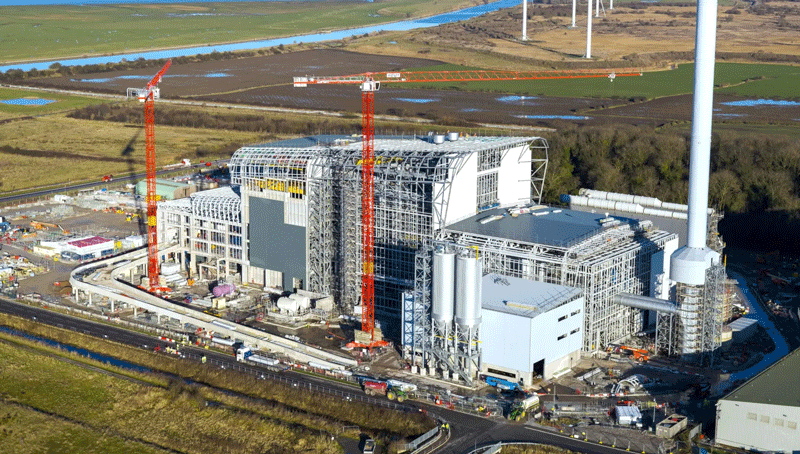By Sarah George
Copyright edie

Work is set to begin to install CCS at the Padeswood cement manufacturing site in Flintshire, north Wales.
Site operator Heidelberg Materials was granted planning permission for the project, which is set to begin operating in 2029, in April 2025.
The business is notably striving to deliver a portfolio of entirely carbon-neutral concrete by mid-century. The Padeswood facility will capture up to 800,000 tonnes of CO2e annually from the site’s existing cement production processes.
Heidelberg Materials UK’s CEO Simon Willis said: “Our constructive partnership with the UK Government has allowed us to reach this major milestone, which is fantastic news, not just for us, but for the industry as a whole.”
Construction works are also ready to begin at Ellesmere Port, where CCS capabilities will be added to a new energy-from-waste processing plant. The plant itself is expected to open in early 2026, managing up to 500,000 tonnes of residual waste annually.
Site developer Encyclis has this week signed final contracts with the Government to begin construction.
With CCS, the site is set to mitigate 380,000 tonnes of CO2e annually.
Strategic vision
The CCS projects are both set to join Eni’s Liverpool Bay Transportation & Storage network, part of the HyNet carbon capture cluster which was green-lit by Prime Minister Keir Starmer in April.
HyNet, spanning North Wales and the North-west of England, is expected to create 2,000 skilled jobs and deliver new infrastructure to help net emissions from industries such as cement, waste-to-energy and hydrogen production.
Energy Minister Michael Shanks said: “These trailblazing projects showcase North Wales and the North West’s workforce on the global stage – leading the charge in the clean industries of the future and powering Britain’s reindustrialisation.”
The Labour-led Government will make up to £21.7bn of funding available over a 25-year period for carbon capture, utilisation and storage (CCUS) and low-carbon hydrogen production. This is in comparison to a £20bn, 20-year commitment from the Tories, which was specific to CCUS.
A Parliamentary committee examining the value for money of Labour’s approach concluded that it was a “gamble” – both in terms of the likely costs and the likely climate benefits.
Related article: Water scarcity could undermine the UK’s low-carbon industrial revolution



